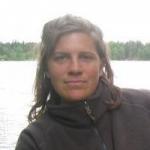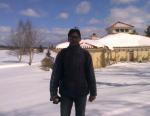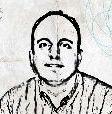Investigating the Sustainability of the Ship-Recycling Industry in Bangladesh
Why This Project Is Important
Every year, thousands of container ships, oil tankers, and cruise liners are beached on the shores of India, Pakistan, and Bangladesh to be broken down and recycled. In Bangladesh alone, the beaching of hundreds of massive ships contributes over 70% of the country’s metal resources, but contaminates the environment and food resources with heavy metals, oil, and asbestos. The magnitude of the flow of used ships to these coastlines illustrates the global scale of humanity's consumption of oil and resources, and its consequences for the poorest among us. While the metal from the ships represents a critical resource for a growing population in Bangladesh, the manner in which these ships are dismantled (by hand with ropes and blow torches) is damaging to people's health and their environment. Our project will use theories from a field called "industrial ecology" to try to improve the economic, social, and environmental dynamics of this ship-recycling industry, to ensure that it is truly sustainable.
Project Description
There are about 200-300 ships beached in the Chittagong (Bangladesh) ship breaking yards each year, providing around 1.5 million tons of scrap ferrous metal, more than 70% of the country’s steel demand. Over 20,000 people work as day laborers in the industry, at over 10,000 small and medium business engaged in processing these metals into final products. Bangladesh is assumed to be second largest country, after India, in the world that rips the ships apart. Despite these dynamics, few studies have investigated the social aspects of the industry, and no study has tracked the material flow of the industry across the country. Scrap metals from the ship-breaking industry in Bangladesh are drawn from Chittagong (where the retired ships are beached) to a community in the capital city Dhaka, five hundred miles away from Chittagong, for further processing. We hypothesize that the relationships among the members of the Dhaka community (and between Dhaka and Chittagong) dictates resource flows. Based on previous studies, we know that metal-working skill, familial and social ties, and long-term reciprocal business relationships can restrain an individual’s competitive mentality and encourage cooperation, and hence resource sharing.
This study will focus on two issues; tracking scrap ferrous metal flows and analyzing the community’s social relations with respect to those resource flows. We will conduct this research by interviewing two groups of people: metal resource contractors of the ship breaking industry (the people who move the metal from the ship breaking yards to the metal workers), and metal working business owners in the Dhaka community (the people who turn the scrap metal into products such as rebar for building construction). We are expecting to conduct about fifty interviews, each of which may last for about an hour. Our questions will largely focus on the level of family ties among businesses, level of reciprocity, resource processing and collection methods, etc. Interviews will be conducted in the local Bangla language. They will be recorded, transcribed, coded, and then analyzed using qualitative and quantitative methods to understand the level of social relations and cooperation involved and the extent responsible for metal flow direction. We will also interview people who either control the purchase of ships or the distribution of metal recovered from the ships into the metal smith communities. We will trace the amount of metal they distribute by weights and by element on an annual basis. To understand the distribution of metals beyond these key informants, we will largely depend on the intermediaries of those who maintain contacts and orders with both the ship-breaking contractors and the small and medium firm owners of metals recycling businesses. Those people will be identified through interviews of community business people and metal contractors. Finally, we expect to contact local and regional government officials and statistical officials to find data that is relevant to the metal distribution, as well as relevant laws and programs for the industry.
Meet the Researchers

Audrey Mayer
I have a joint appointment with the Department of Social Sciences and the School of Forest Resources and Environmental Science. My research fits generally within the framework of multidisciplinary sustainability science. I develop and test sustainability indices for their utility to manage dynamic human-environmental systems from local to global scales. I also look at the impact of economic trade on the sustainability of these systems, the so-called "leakage" effect, and its impact on local ecosystems, the "boomerang" effect. Finally, I am interested in using economic incentive policies and landscape-scale management tools to safeguard forest ecosystem services, commonly referred to as "payment for ecosystem services" (PES).
My training and experience is multidisciplinary, split between ecology and policy, with plenty of natural resource economics thrown into the mix. My work is split between computer simulations and GIS, to data collection in a variety of habitats. I have conducted field work in the coastal sage scrub in southern California, the Florida Everglades, urbanized watersheds in Cincinnati, protected natural areas throughout the Midwest, and the boreal forest in Finland and Russia.

S. M. Mizanur Rahman
I am a PhD. student in the Environmental and Energy Policy program in the Department of Social Science. I have a B.S. and Masters in Applied Chemistry and Chemical Technology and, later, completed another Masters in Development Studies from the University of Dhaka, Bangladesh. I started my career as a lecturer of Chemistry and worked with a nonprofit organization as a project coordinator of a disaster management project. Currently, I am studying at Michigan Tech Social Science department and interested in investigating the influence of social capital behind the formation of industrial symbiosis in Bangladesh.
days left
funded
last
What Your Donation Can Help Us Do:
- We are primarily looking for funding for travel and supplies. With this money, Mizan can travel to Bangladesh to conduct interviews and collect data.
$1+ 13 Funders
Receipt acknowledging tax-deductible status of your donation
$50+ 10 Funders
Receipt acknowledging tax-deductible status of your donation plus a Key Chain
Recent Donors
Some donors may be hidden.



 Gifts to projects listed on SUPERIORIDEAS.ORG are received and processed by Michigan Tech Fund. Michigan Tech Fund is a tax-exempt organization under Section 501(c)(3) of the Internal Revenue Code acting on behalf of Michigan Technological University. It is the policy of Michigan Tech Fund that a portion of the gifts and/or income therefrom may be used to defray the costs of raising and administering the funds.
Gifts to projects listed on SUPERIORIDEAS.ORG are received and processed by Michigan Tech Fund. Michigan Tech Fund is a tax-exempt organization under Section 501(c)(3) of the Internal Revenue Code acting on behalf of Michigan Technological University. It is the policy of Michigan Tech Fund that a portion of the gifts and/or income therefrom may be used to defray the costs of raising and administering the funds.